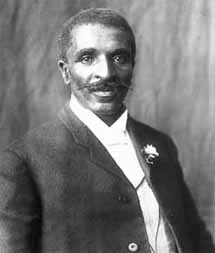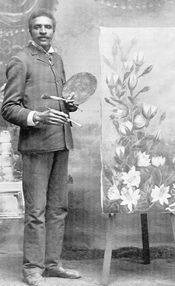


About George Washington Carver
(Circa 1864-5 January 1943)
(Used with the kind permission of Iowa State University)




 Born into slavery circa 1864, George Washington Carver became one of the nation’s great educators and agricultural researchers. Carver possessed a thirst for knowledge and education that led him from Missouri, through Kansas, to Winterset, Iowa. Friends in Winterset recognized his talents and encouraged him to enroll at Simpson College in Indianola where he studied art and music. Etta Budd, his art instructor, recognized Carver’s horticultural talents and convinced him to pursue a career in scientific agriculture at Iowa State College, where her father was head of the Department of Horticulture.
Born into slavery circa 1864, George Washington Carver became one of the nation’s great educators and agricultural researchers. Carver possessed a thirst for knowledge and education that led him from Missouri, through Kansas, to Winterset, Iowa. Friends in Winterset recognized his talents and encouraged him to enroll at Simpson College in Indianola where he studied art and music. Etta Budd, his art instructor, recognized Carver’s horticultural talents and convinced him to pursue a career in scientific agriculture at Iowa State College, where her father was head of the Department of Horticulture.